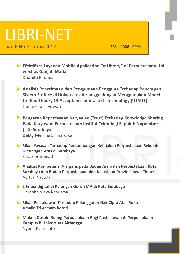Dental Journal (Majalah Kedokteran Gigi)
ISSN 1978-3728
Vol. 41 / No. 2 / Published : 2008-04
Related with : Scholar Yahoo! Bing
Original Article :
Effect of il-1 and gustducin expression change on bitter taste during fever
Author :
- Jenny Sunariani*1
- Department of Oral Biology
Faculty of Dentistry Airlangga University
Surabaya - Indonesia
Abstract :
ABSTRACT Homeostatic changes in the body, such as fever, cause inflammation, whose one of its impacts is the sense of bitterness inside the mouth. It implies in the reduction of appetite, which may finally result in the reduction of physical condition due to the inadequacy of food intake. It causes the inhibition of healing process, which reduces working productivity. The objective of this study was to identify the mechanism of bitterness due to inflammation, as proved locally in the taste buds of Wistar rats. This study was carried out experimentally using post-test only control design in experimental animals of male Wistar strain Rattus norvegicus. The animals were divided into two groups. First group served as control, while the second group received treatment with Salmonella typhimurium 0.5 ml/kg BW. Blood sample and tongue incision were taken from the animals. IL-1 was counted, and tongue incision was used for immunohistochemical staining for the variables of gustducin. Data were analyzed using Kolmogorov-Smirnov test for data normality, and followed with comparative test. The discriminant analysis was also done to find the discriminant variable. It was found that there was an increase of biological response of signaling transduction of bitterness in taste buds, as indicated from the increase of gustducin in treatment group or in inflammatory fever condition as compared to control group (p < 0.05), but no change of concertation at IL-1 significan whenever the was any change of concertation by unfolding its mechanism. Further studies can be recommended to find the way to inhibit this sense of bitterness. The results are intended to overcome homeostatic disorder in the body to prevent loss of appetite, so that physical endurance can be maintained. This study concludes that there is no increase of serum IL-1 expression in fever, but there is a significanly increase of taste buds gustducin. Further studies should focus on gustducin cellular role in other factors that play a role in taste buds signal transduction, either in homeostatic condition or in the condition of homeostatic disorder.
Keyword :
inflammation, bitter taste, gustducin, IL-1,
References :
Archive Article
| Cover Media | Content |
|---|---|
 Volume : 41 / No. : 2 / Pub. : 2008-06 |
|













